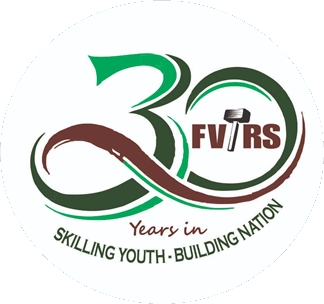NATIONAL SKILL CONFERENCE
(NSC)-15th Edition
Skilling Youth Towards A Changing World
Join us & be the Change
The Capitol Hotel, Bengaluru
As the world becomes increasingly digitized, digital skills are crucial for individuals to navigate the modern workplace and society. Artificial Intelligence (AI) and Machine Learning (ML) has come as a blessing to automate processes and gain insights.
Proper skills for the use of these technologies are becoming significant in running a business, upgrading the job roles, and access to various facilities.
India being a country with vast population and disparities in socioeconomic situations, Proficiency in effective
communication through digital channels and collaborative platforms are becoming essential elements. Hence, bridging the gaps for acquiring digital skills are very important to remain relevant.
The rapid pace of technological advancements requires individuals to continuously update their skills to keep up with new tools and platforms. Another important challenge is limited availability of talent pool, leading to a shortage of qualified individuals.
India has made significant strides in digital progress, but the challenges remain, including bridging the digital divide, ensuring internet accessibility in rural areas, and promoting digital literacy across all segments of society. Continued efforts, investment, and policy interventions are necessary to sustain and expand digital progress in India.
For the past few years the country has witnessed an unbelievable digital revolution in the area of banking, finance sector, internet penetration, data management, online education, etc. Digital skills are in high demand across industries, creating a wide range of employment opportunities. One of the major advantage is that digital skills enable remote work and provide flexibility in terms of location and working hours and even empower individuals to start their own businesses, work as freelancers, and tap into the global market. The digital growth in India is beyond imagination and the pace it is happening will create such lot of opportunities for the skilled ones.
“ Future Ready with Digitization Inskilling ”
Leveraging a decentralized and Interoperable skilling platform with an Integrated Skill wallet.
Strong Environmental, Social and Governance practices are significant to manage risks related to environmental,
social, and governance issues, leading to long-term stability. It is essential to have ESG policies to promote responsible and sustainable practices for addressing the pressing issues like climate change, resource scarcity, and pollution.
It is imperative for the skill promoters and industries to have ESG mandates which helps to assess and reduce their environmental footprint, address social issues like labour rights, diversity and inclusion, human rights, and community engagement to build trust and foster a positive impact and transparent and accountable governance is for long-term success, as it helps prevent corruption, fraud, and conflicts of interest.
There are many challenges to promote ESG and some of the key challenges are having universally accepted framework, data management, stakeholders engagement and financial management.
Today ESG is relevant and necessary in the changing world to drive sustainable practices,
mitigate risks, and foster positive societal impact. However, the ESG implementation requires collaboration,
standardization, and a commitment to long-term thinking from all stakeholders involved.
Essential skills, especially soft skills that attribute to the managerial skills are important to understand the expectations of employers. Understanding the aspirations of employers and employees will be highly beneficial for designing and implementing skill programs or modifying existing ones. This would contribute to enhancing the work efficiency of individuals in these roles and consequently improve their employability, wages, and job security.
The job landscape in India, is undergoing rapid changes. Various new job roles have emerged, such as delivery personnel and customer care representatives, which do not necessarily require highly sophisticated skills. With the constant creation of new job opportunities, many ambitious young individuals struggle to adapt themselves to the evolving job market due to a lack of additional skills other than technical skill and minimum educational requirements.
Therefore, it is crucial to address this issue by focusing on skill development programs that cater to the needs of these emerging job roles. By identifying the specific skills and educational prerequisites expected by employers, appropriate training programs can be designed and implemented. These programs should aim to equip individuals with the necessary knowledge and abilities to excel in these new types of jobs.
Improving the work efficiency and skillsets of laborers through targeted skill programs
will not only benefit the individuals themselves but also contribute to their enhanced employability, higher wages, and improved job security. It is essential to bridge the gap between the demands of the evolving job market and the skill sets of the workforce to ensure a smooth transition and inclusive growth in the employment sector.


Dr. Ashwathnarayan C. N.
Minister for Higher Education; It & Bt, Science &Technology
Skill Development, Entrepreneurship & Livelihood
















During its 30 years of journey, FVTRS has played a major role in sensitizing its stakeholders to promote vocational training for the disadvantaged, early school leavers and less educated youth. For FVTRS, The primary focus of the skill training is on people working in unorganized sectors. The workers in the unorganized sector are inevitable and their contribution to the workforce and economic growth is unimaginable.